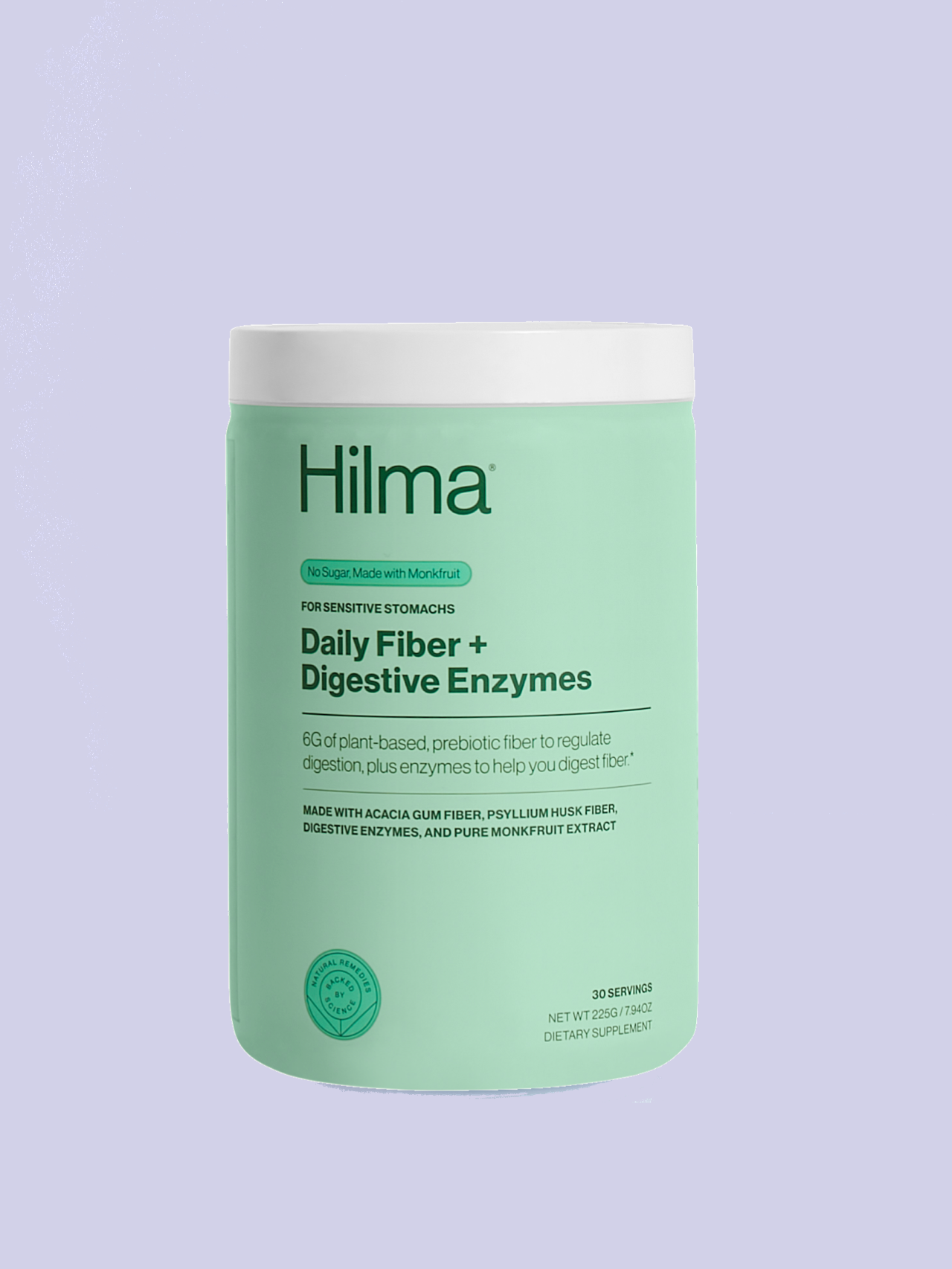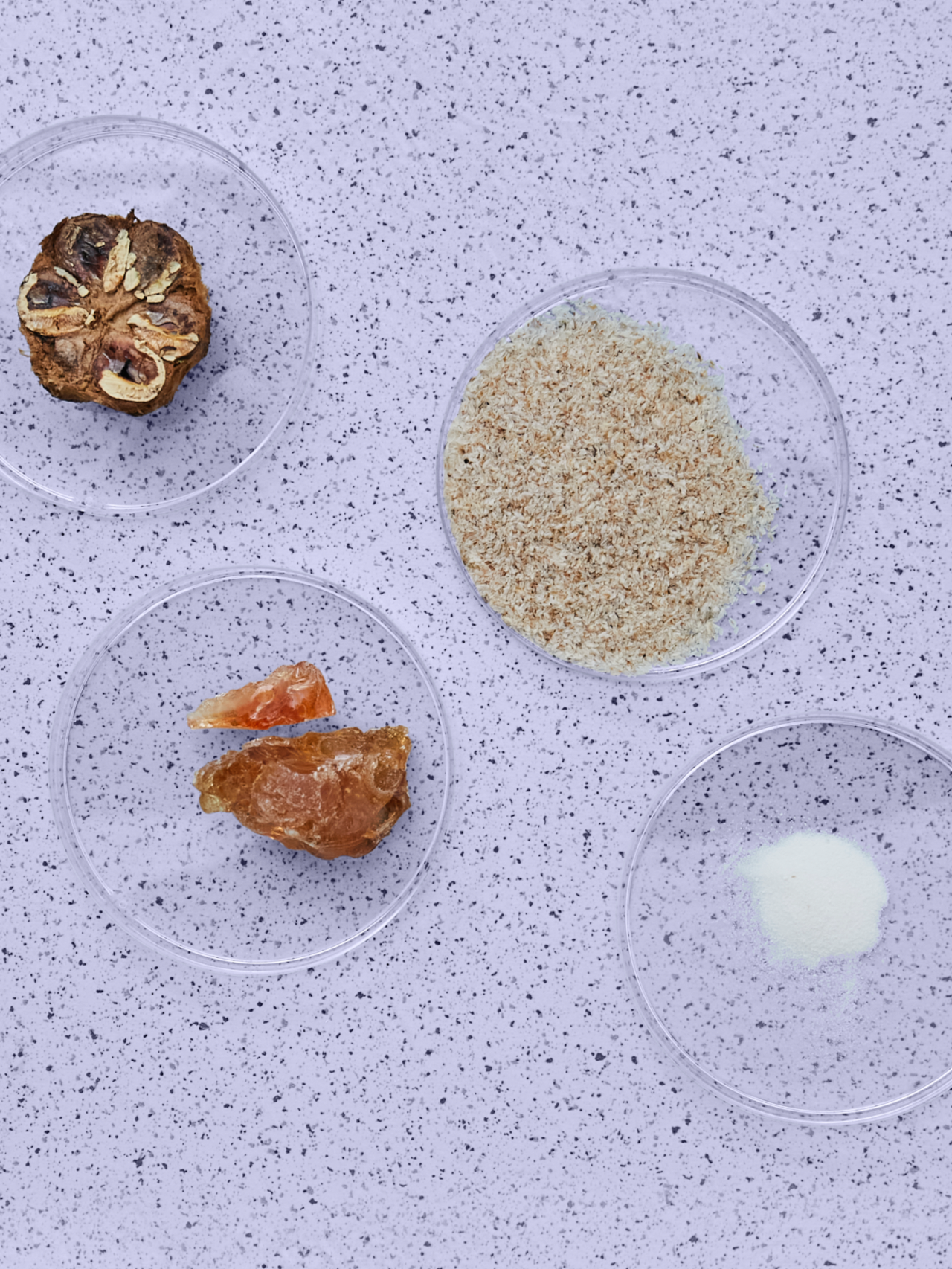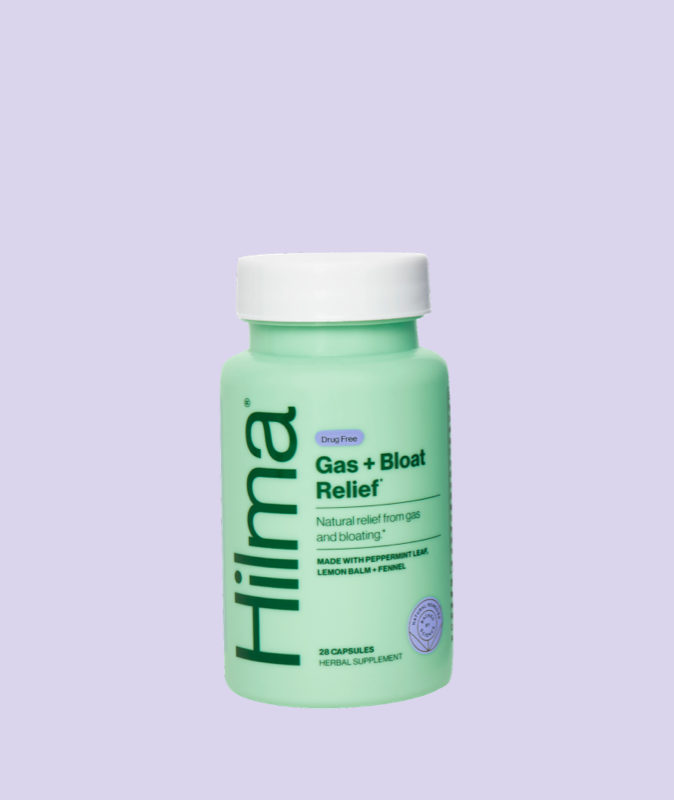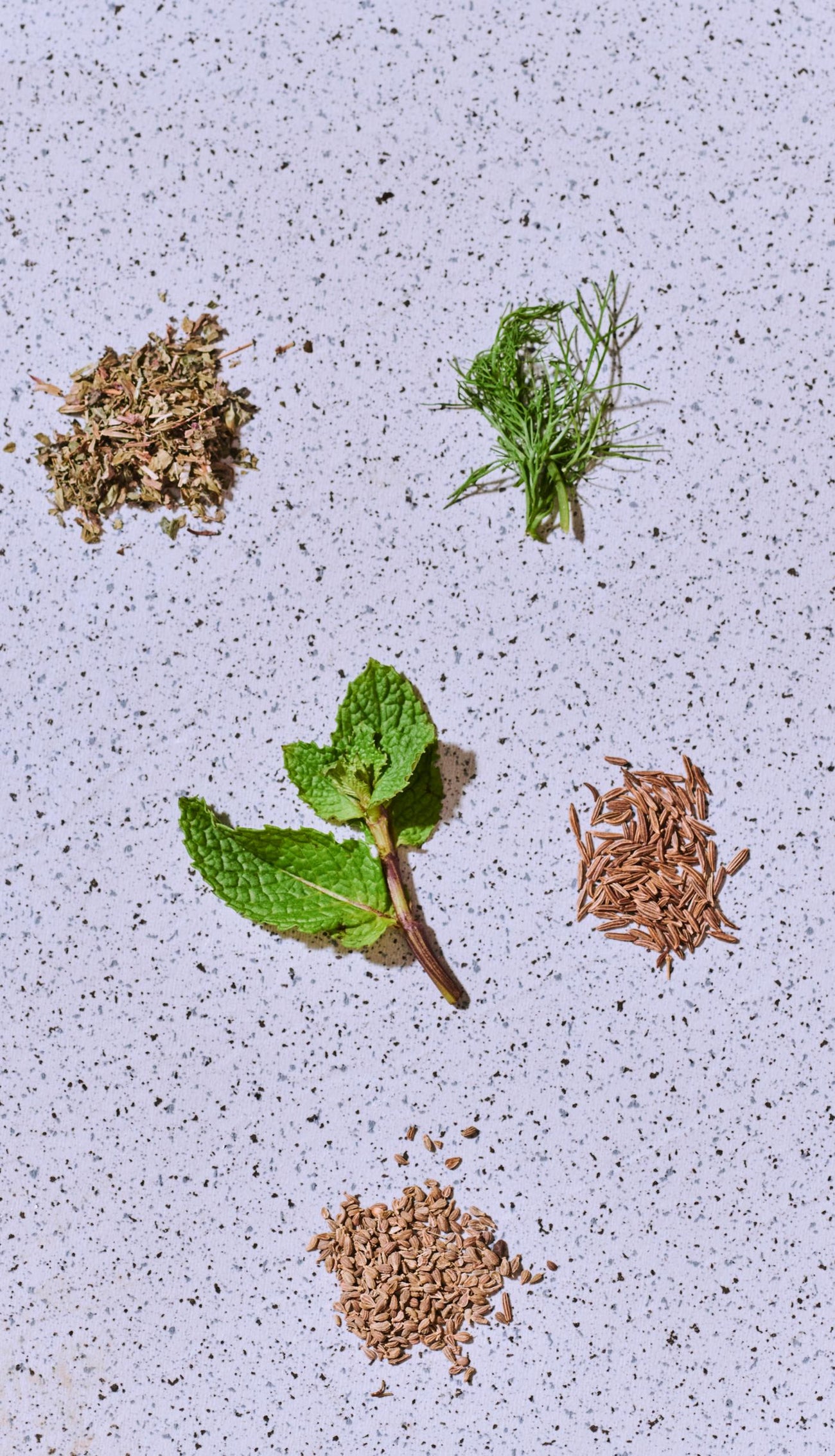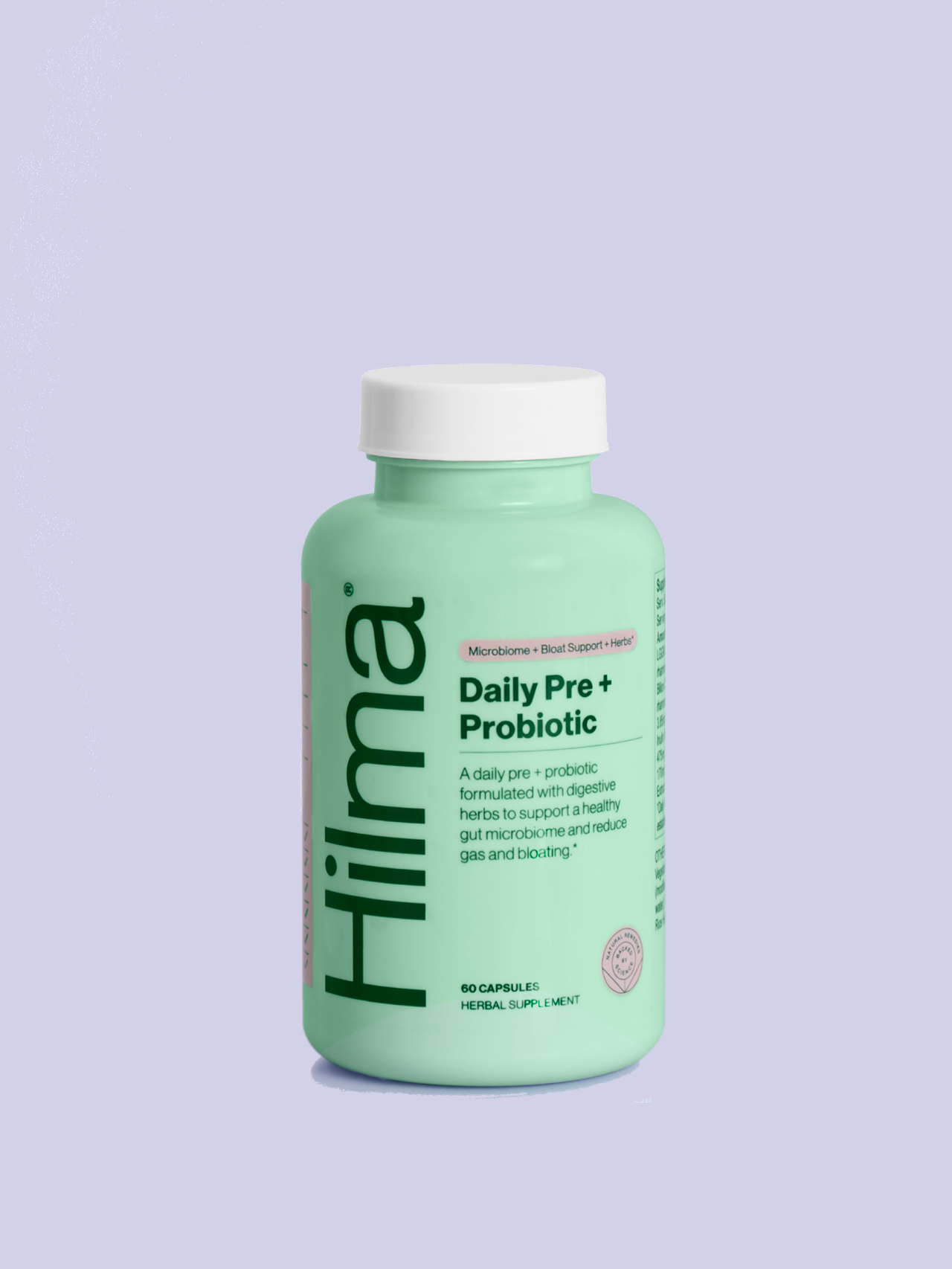
As fall rolls in, it's the perfect time to embrace cozy, comforting foods that support your gut health. Our holistic health coach, Ale, has crafted five gut-friendly recipes that are not only delicious but are packed with ingredients that nourish your digestive system. Below, we’ll dive into these fall-inspired recipes, highlighting their benefits and explaining why they’re great for your gut.

1. Low FODMAP Carrot Cake Protein Balls
These bite-sized protein balls are perfect for a quick snack or dessert and are ideal for anyone following a low FODMAP diet, which is often recommended for those with irritable bowel syndrome (IBS). The ingredients are carefully chosen to promote digestion and minimize bloating.
Ingredients:
- 4 raw carrots
- ½ cup Sunflower seed butter
- 2 scoops Clean vanilla protein powder
- Handful of walnuts
- Vanilla extract (or vanilla paste)
- ⅛ cup Almond milk
- Cinnamon
- Coconut flakes
Instructions:
- Add ~4 raw carrots to the food processor.
- Mix raw carrots the carrots are in tiny pieces.
- Add ½ cup sunflower seed butter.
- Add 2 scoops of a clean vanilla protein powder.
- Add a handful of walnuts.
- Add a dash of vanilla extract (or vanilla paste).
- Mix in food processor.
- Add ⅛ cup of almond milk.
- Mix thick in consistency.
- Roll into balls.
- Top with cinnamon and coconut flakes and enjoy!
Gut Health Benefits Of Ingredients:
1. Sunflower Seed Butter
Sunflower seed butter is a great alternative to nut butters, especially for those with nut allergies. It’s packed with nutrients that support gut health.
Gut Health Benefits:
- Rich in fiber: The fiber in sunflower seeds helps promote regular bowel movements and supports the growth of healthy gut bacteria.
- High in healthy fats: Sunflower seed butter is a good source of polyunsaturated fats, including omega-6 fatty acids, which are important for maintaining the gut lining's integrity.
- Vitamin E: Sunflower seeds are one of the best sources of vitamin E, an antioxidant that helps reduce inflammation in the gut, which is essential for those with inflammatory digestive conditions.
2. Protein Powder
Protein powder, particularly plant-based or collagen-based options, can support gut health, especially when incorporated into a balanced diet.
Gut Health Benefits:
- Supports muscle repair: Adequate protein intake is crucial for tissue repair, including the cells in the gut lining. Collagen protein, in particular, contains amino acids like glutamine, which helps repair and maintain the gut lining.
- Easily digestible: High-quality, clean protein powders are typically easier to digest than some whole food protein sources, making them a convenient option for those with sensitive digestion.
- Minimal additives: When choosing protein powders with minimal ingredients and no artificial sweeteners, you reduce the likelihood of gut irritation or bloating.
3. Walnuts
Walnuts are not only nutrient-dense but also play a significant role in supporting gut health. They are often considered a "brain food," but their gut benefits are equally impressive.
Gut Health Benefits:
- Rich in prebiotics: Walnuts contain prebiotics, which are non-digestible fibers that feed and support the growth of beneficial gut bacteria. A balanced gut microbiome is essential for overall digestive health.
- Omega-3 fatty acids: The high content of omega-3s in walnuts has anti-inflammatory properties that can help reduce gut inflammation and promote a healthy gut environment.
- Antioxidants: Walnuts are packed with antioxidants, which help combat oxidative stress in the gut and support the gut lining.
4. Almond Milk
Almond milk is a dairy-free alternative to cow’s milk, making it a good option for those with lactose intolerance or dairy sensitivities. It’s often fortified with vitamins and minerals, making it beneficial for overall health.
Gut Health Benefits:
- Lactose-free: Almond milk is naturally free from lactose, making it easier to digest for people who are lactose intolerant or have trouble digesting dairy products.
- Low in FODMAPs: Almond milk is low in FODMAPs, which are certain types of carbohydrates that can trigger digestive symptoms like bloating and gas in people with IBS.
- Nutrient-rich: Almond milk is often fortified with calcium, vitamin D, and vitamin E. These nutrients support overall gut health and help maintain healthy digestion, particularly for those who avoid dairy.
These four ingredients can easily be integrated into a gut-friendly diet, providing a blend of fiber, healthy fats, antioxidants, and prebiotics to support optimal digestion and overall gut health.

2. Fiber-Full Banana Bread Batter
Banana bread is a quintessential comfort food for fall, and this fiber-packed version adds an extra layer of gut health support. The combination of prebiotic-rich bananas and whole grains ensures your gut flora thrives while you indulge in a warm, moist slice.
Ingredients:
- 1 overripe banana
- 1 scoop of clean vanilla protein powder
- 1 tbsp ground flaxseed
- 2 tbsp Hilma Daily Fiber + Digestive Enzymes
- Preferred milk
- Cinnamon
Instructions:
- Add 1 overripe banana to a small bowl.
- Mash and mix the banana.
- Add 1 scoop of clean vanilla protein powder.
- Add 1 tbsp ground flaxseed.
- Add 2 tbsp Hilma Daily Fiber + Digestive Enzymes.
- Mix ingredients in bowl.
- Add a dash of your preferred milk to create desired consistency.
- Top with cinnamon.
- Enjoy with a piece of dark chocolate.
Gut Health Benefits of ingredients:
1. Banana
Bananas are a popular fruit that’s not only delicious but also packed with nutrients that benefit your gut.
Gut Health Benefits:
- Prebiotic fiber: Bananas contain prebiotic fibers, particularly in their less-ripe form. Prebiotics feed the beneficial bacteria in your gut, promoting a healthy microbiome.
- Rich in pectin: Pectin is a type of soluble fiber in bananas that helps improve digestion by regulating bowel movements and softening the stool. This can help relieve constipation and promote regularity.
- Easy to digest: Bananas are soft and easy to digest, making them a great option for people with digestive issues such as gastritis or acid reflux.
- Electrolytes: Bananas are high in potassium, an electrolyte that helps maintain fluid balance in the digestive system, which can help with digestion and prevent bloating.
2. Protein Powder
Protein powder is a concentrated source of protein that can support gut health, especially when you choose high-quality, clean formulas with minimal additives.
Gut Health Benefits:
- Aids in tissue repair: Protein is essential for the repair and regeneration of cells, including the cells in the gut lining. Collagen protein, in particular, contains amino acids like glutamine, which help repair the gut lining.
- Easily digestible: Many protein powders are formulated to be easily digestible, making them an excellent option for individuals with sensitive digestive systems.
- Minimal ingredients: High-quality protein powders without artificial sweeteners or additives are less likely to cause digestive issues such as bloating or gas, making them gut-friendly when consumed in moderation.
3. Flaxseed
Flaxseeds are a nutritional powerhouse, offering a variety of benefits for gut health due to their high fiber and omega-3 fatty acid content.
Gut Health Benefits:
- High in soluble fiber: Flaxseeds contain both soluble and insoluble fiber, which helps promote regular bowel movements and prevent constipation. The soluble fiber absorbs water and creates a gel-like consistency that softens the stool, while insoluble fiber adds bulk.
- Supports gut flora: The fiber in flaxseeds also acts as a prebiotic, feeding the beneficial bacteria in your gut and supporting a healthy microbiome.
- Rich in omega-3 fatty acids: Omega-3s in flaxseeds help reduce inflammation in the digestive system, which is beneficial for those with inflammatory conditions like irritable bowel syndrome (IBS) or Crohn’s disease.
- Promotes regularity: Flaxseeds are a natural way to support regular bowel movements and ease digestive discomfort. When ground, they are more easily absorbed, enhancing their digestive benefits.
4. Hilma Daily Fiber + Digestive Enzymes
Hilma's Daily Fiber + Digestive Enzymes is designed to support gut health with a blend of natural fibers and enzymes that improve digestion and promote regularity.
Gut Health Benefits:
- Blend of soluble and insoluble fiber: This product provides a combination of fibers that promote healthy digestion. Soluble fiber helps soften stool and support gut flora, while insoluble fiber adds bulk and ensures smooth movement through the digestive tract, aiding in regular bowel movements.
- Digestive enzymes for better nutrient absorption: The digestive enzymes included in this blend help break down proteins, fats, and carbohydrates, improving overall digestion and nutrient absorption. This is especially beneficial for people who struggle with bloating or indigestion after meals.
- Reduces bloating and discomfort: By promoting proper digestion and reducing the chances of undigested food fermenting in the gut (which often leads to gas and bloating), Hilma’s blend can help alleviate common digestive issues.
- Gut microbiome support: The fiber in this formula acts as a prebiotic, feeding the beneficial bacteria in your gut. This helps to maintain a balanced microbiome, which is essential for overall digestive and immune health.
Each of these ingredients provides key nutrients and support for digestive health. Together, they can help maintain regularity, reduce bloating, and promote a healthy gut environment, making them valuable components of a gut-friendly diet.

3. Gluten-Free and Vegan Pumpkin Bread
Fall wouldn’t be complete without something pumpkin-flavored. This gluten-free and vegan pumpkin bread is perfect for those avoiding gluten and dairy. It's lightly spiced, naturally sweetened, and packed with gut-friendly ingredients that support digestion.
Ingredients:
- 1 can of mashed pumpkin
- ¼ cup of avocado oil
- ¼ cup of maple syrup or honey
- Vanilla extract or vanilla bean paste
- 1 cup of gluten-free all-purpose flour (or oat flour)
- Cinnamon
- Ginger
- Nutmeg
- Cardamon
- Clove
- 1 tsp baking powder
- ½ tsp baking soda
- Protein powder
- Almond milk
- Vanilla extract
Instructions:
- Preheat the oven to 400°F (200°C).
- Add 1 can of mashed pumpkin to a medium bowl.
- Add ¼ cup of avocado oil.
- Add ¼ cup of maple syrup or honey.
- Add a generous amount of Vanilla extract or vanilla bean paste.
- Mix wet ingredients.
- In a different bowl, add 1 cup of gluten-free all-purpose flour (or oat flour).
- Add a dash of cinnamon, ginger, nutmeg, cardamon, and clove to the flour mixture.
- Add 1 tsp baking powder to dry ingredients.
- Add ½ tsp baking soda to dry ingredients.
- Mix dry ingredients.
- Add dry ingredients to the wet ingredients and mix together.
- Add mixture to a buttered bread pan.
- Bake at 400 degrees for 30 minutes or until cooked through.
- Add glaze (combine protein powder, almond milk, and vanilla extract).
- Top with cinnamon and enjoy! :)
Gut Health Benefits of ingredients:
1. Pumpkin
Pumpkin is a fall favorite and a highly nutritious food with several gut-friendly benefits.
Gut Health Benefits:
- High in soluble fiber: Pumpkin is rich in soluble fiber, which absorbs water and forms a gel-like substance in your digestive system. This helps slow down digestion, promote satiety, and regulate bowel movements, which is beneficial for both constipation and diarrhea.
- Promotes gut flora: The fiber in pumpkin acts as a prebiotic, feeding the beneficial bacteria in your gut. A healthy gut microbiome is essential for overall digestion, nutrient absorption, and immune function.
- Soothes digestion: Pumpkin is easily digestible and can be a soothing option for those with sensitive digestive systems. Its soft texture and high water content make it gentle on the stomach and intestines.
- Rich in vitamins and antioxidants: Pumpkin is packed with vitamins A and C, as well as antioxidants like beta-carotene, which can help reduce inflammation in the gut and support the integrity of the gut lining.
2. Gluten-Free All-Purpose Flour
Gluten-free all-purpose flour is a staple for those with celiac disease or gluten sensitivity, providing an alternative to traditional wheat-based flours. Its impact on gut health depends on its specific blend of ingredients, but most gluten-free flours offer several benefits.
Gut Health Benefits:
- Gentle on the gut: For individuals with celiac disease or non-celiac gluten sensitivity, traditional gluten-containing flours can trigger inflammation, bloating, and digestive discomfort. Gluten-free all-purpose flour eliminates this trigger, promoting easier digestion and reducing gut irritation.
- Made from nutrient-dense ingredients: Gluten-free flours are often made from a blend of gut-friendly ingredients such as rice flour, almond flour, tapioca starch, or sorghum. These ingredients are generally easier to digest and provide a range of nutrients.
- Almond flour, for instance, is high in fiber, protein, and healthy fats, all of which support digestion and help balance blood sugar.
- Rice flour is a light, easily digestible option, making it less likely to cause bloating or digestive discomfort.
- Lower in FODMAPs: Many gluten-free flours are lower in FODMAPs (certain types of carbohydrates that can cause gas and bloating in individuals with IBS). This makes gluten-free flour blends a safer option for those following a low FODMAP diet.
Together, pumpkin and gluten-free all-purpose flour can be used to create gut-friendly baked goods, offering fiber, nutrients, and easy digestion without triggering gut sensitivity or inflammation.

4. Soothing Stewed Apples
Stewed apples are a classic fall treat with a gut-soothing twist. The gentle cooking process makes them easier to digest, and the natural pectin from apples supports gut health by feeding beneficial bacteria.
Ingredients:
- 5 apples (red, green, or yellow)
- Cinnamon
- Coconut yogurt
Instructions
- Chop apples into cubes.
- Place apple cubes into a pot of water.
- Bring the water to a boil and then reduce heat.
- Top with lid.
- Add cinnamon.
- Let simmer and stir occasionally.
Gut Health Benefits of ingredients:
1. Stewed Apples
Stewed apples are a warm, comforting dish that’s easy to digest and packed with nutrients that benefit gut health.
Gut Health Benefits:
- Rich in pectin: Apples contain a type of soluble fiber called pectin, which is especially abundant in stewed apples. Pectin acts as a prebiotic, feeding the beneficial bacteria in your gut and supporting a healthy microbiome. It also helps to regulate bowel movements by adding bulk to the stool, which can ease both constipation and diarrhea.
- Easier to digest: Cooking apples softens their fiber and breaks down some of their sugars, making them gentler on the digestive system, especially for those with sensitive stomachs or digestive conditions like IBS or GERD.
- Soothing for the gut: Stewed apples are a great option for those recovering from gut irritation or illness. Their soft texture and warm temperature make them easy to digest, while their natural sweetness satisfies without irritating the stomach.
2. Cinnamon
Cinnamon is a popular spice that not only adds warmth and flavor to dishes but also comes with various health benefits, particularly for the digestive system.
Gut Health Benefits:
- Anti-inflammatory properties: Cinnamon contains powerful antioxidants like polyphenols, which help reduce inflammation in the gut. This can be beneficial for those with inflammatory gut conditions such as IBS or Crohn's disease.
- Aids digestion: Cinnamon can stimulate the production of digestive enzymes, improving the breakdown of food and promoting smoother digestion. It may help alleviate symptoms like gas, bloating, and indigestion.
- Balances blood sugar: By helping regulate blood sugar levels, cinnamon can prevent the spikes and crashes that often lead to digestive discomfort and inflammation.
- Antimicrobial effects: Cinnamon has natural antimicrobial properties that can help balance the gut microbiome by inhibiting the growth of harmful bacteria and yeast, which may contribute to gut issues.
3. Coconut Yogurt
Coconut yogurt is a dairy-free alternative made from coconut milk, making it ideal for those with lactose intolerance or dairy sensitivities. It is often fortified with probiotics, which directly support gut health.
Gut Health Benefits:
- Probiotic-rich: Like traditional yogurt, coconut yogurt is often fortified with probiotics, which are live beneficial bacteria that support a healthy gut microbiome. These probiotics can improve digestion, boost immunity, and reduce symptoms of gut dysbiosis, such as bloating and gas.
- Dairy-free and lactose-free: Coconut yogurt is naturally lactose-free, making it easier to digest for those with lactose intolerance or dairy sensitivities. This makes it a gentler option for the gut compared to traditional dairy-based yogurt.
- Contains medium-chain triglycerides (MCTs): Coconut is rich in MCTs, a type of fat that is easily absorbed and quickly used for energy. MCTs can have anti-inflammatory effects on the gut and help improve the absorption of fat-soluble vitamins.
- Supports gut lining: Coconut yogurt’s anti-inflammatory properties, along with its probiotic content, can help maintain and repair the gut lining, reducing symptoms like leaky gut.
Together, stewed apples, cinnamon, and coconut yogurt make a soothing, gut-friendly combination. They provide prebiotic fiber, probiotics, anti-inflammatory compounds, and a gentle source of nourishment for a healthy digestive system.

5. High-Fiber Fall Chopped Salad
Ingredients:
- 1 sweet potato
- 1 head of purple cabbage
- 1 zucchini
- 1 apple
- 1 can chickpeas
Dressing:
- Olive oil
- Dijon mustard
- Honey
- Apple cider vinegar
Instructions:
- Preheat the oven to 400°F (200°C).
- Peel and dice the sweet potato. Rinse and drain the chickpeas from the can.
- Place the sweet potatoes and chickpeas on a baking sheet. Toss them with avocado oil, garlic powder, and paprika until evenly coated. Bake in the preheated oven for 35 minutes.
- Meanwhile, chop the purple cabbage, zucchini, and apple into bite-sized pieces.
- In a large mixing bowl, combine the roasted sweet potatoes and chickpeas with the chopped raw veggies.
- In a small bowl, whisk together the olive oil, Dijon mustard, honey, and apple cider vinegar to make the dressing.
- Pour the dressing over the salad and toss everything together until well coated.
Gut Health Benefits of ingredients:
1. Sweet Potatoes
Sweet potatoes are a nutritious, fiber-rich root vegetable with several benefits for gut health and overall well-being.
Gut Health Benefits:
- Rich in fiber: Sweet potatoes contain both soluble and insoluble fiber. Soluble fiber helps to slow digestion, regulate blood sugar, and feed beneficial gut bacteria, while insoluble fiber adds bulk to stool, promoting regular bowel movements.
- Supports gut health: The fiber in sweet potatoes acts as a prebiotic, meaning it nourishes the beneficial bacteria in the gut, supporting a healthy microbiome.
- Anti-inflammatory properties: Sweet potatoes are high in antioxidants, particularly beta-carotene, which is converted to vitamin A in the body. Vitamin A helps maintain the integrity of the gut lining and reduces inflammation in the digestive tract.
2. Purple Cabbage
Purple cabbage is a cruciferous vegetable that offers both digestive and immune-supporting benefits.
Gut Health Benefits:
- High in fiber: Purple cabbage is loaded with fiber, especially insoluble fiber, which adds bulk to the stool and promotes regular bowel movements. Its high fiber content can also help reduce constipation and promote satiety.
- Rich in antioxidants: Purple cabbage is particularly high in anthocyanins, which are powerful antioxidants with anti-inflammatory properties. These antioxidants help reduce gut inflammation and protect the cells lining the digestive tract.
- Sulforaphane: Like other cruciferous vegetables, purple cabbage contains sulforaphane, a compound that supports detoxification and may help protect the gut from harmful bacteria and inflammation.
- Supports a healthy gut microbiome: The fiber in purple cabbage acts as a prebiotic, feeding beneficial gut bacteria and contributing to a balanced microbiome.
3. Apple
Apples are a versatile and fiber-rich fruit that provides a range of gut health benefits, especially when eaten with the skin.
Gut Health Benefits:
- Rich in pectin: Apples contain a high amount of pectin, a soluble fiber that acts as a prebiotic by feeding beneficial gut bacteria. Pectin also helps regulate bowel movements and can ease both constipation and diarrhea.
- Supports a balanced gut: The prebiotic fiber in apples helps maintain a healthy balance of gut bacteria, promoting better digestion and nutrient absorption.
- Antioxidants: Apples are rich in antioxidants, such as quercetin, which can help reduce inflammation in the gut, support immune function, and protect the digestive lining from oxidative stress.
- Hydration and digestion: Apples have a high water content, which aids in digestion by helping to soften the stool and prevent dehydration-related constipation.
4. Chickpeas
Chickpeas (also known as garbanzo beans) are a legume packed with protein, fiber, and essential nutrients that promote gut health.
Gut Health Benefits:
- High in fiber: Chickpeas are a great source of both soluble and insoluble fiber. Soluble fiber helps regulate blood sugar and supports the growth of beneficial gut bacteria, while insoluble fiber adds bulk to the stool, promoting regularity and preventing constipation.
- Supports a healthy microbiome: The fiber in chickpeas acts as a prebiotic, feeding and supporting the growth of beneficial gut bacteria. A healthy gut microbiome contributes to better digestion and improved overall health.
- Rich in protein: The plant-based protein in chickpeas aids in muscle repair and overall health, including the maintenance of the gut lining.
- Promotes satiety: The combination of fiber and protein in chickpeas helps you feel full longer, supporting healthy digestion and preventing overeating, which can contribute to digestive discomfort.
5. Apple Cider Vinegar
Apple cider vinegar (ACV) is a fermented product that is often touted for its digestive and gut health benefits.
Gut Health Benefits:
- Aids digestion: ACV contains acetic acid, which helps increase stomach acidity. This can improve the digestion of food and the absorption of nutrients, particularly proteins and minerals. It may also prevent issues like bloating and indigestion by promoting proper stomach acid levels.
- Balances gut bacteria: The fermentation process used to make ACV produces probiotics, which support a healthy balance of gut bacteria. A healthy microbiome can reduce symptoms of digestive disorders like bloating and constipation.
- Helps regulate blood sugar: ACV has been shown to help regulate blood sugar levels after meals, preventing spikes that can contribute to digestive discomfort. Stable blood sugar levels are key for maintaining steady energy and avoiding digestive upset.
- Anti-inflammatory properties: ACV’s antioxidants, such as polyphenols, may reduce inflammation in the gut and support the gut lining.
Each of these foods offers a unique set of nutrients that support gut health, making them excellent additions to a gut-friendly diet. Combined, they provide fiber, prebiotics, antioxidants, and anti-inflammatory compounds that help maintain a healthy gut microbiome and support smooth digestion.
